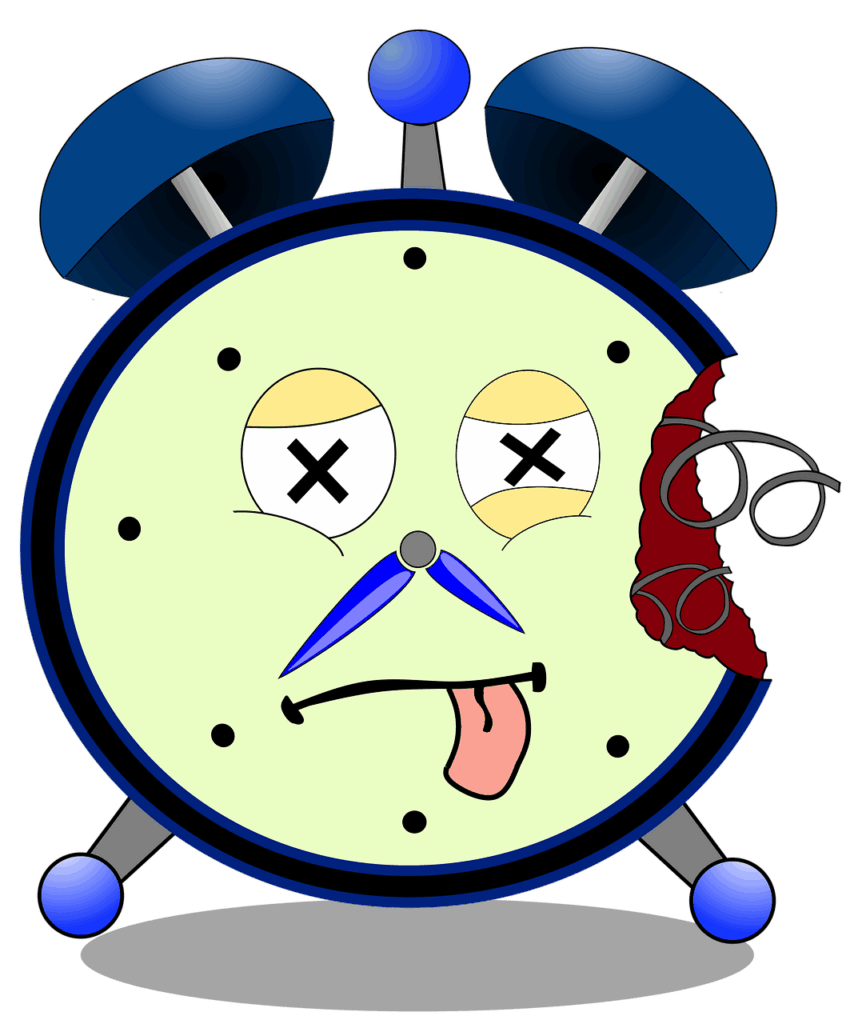
Let’s be real—mornings hold immense power. They are the true architects of your day, setting the tone for everything that follows, from your focus and productivity to your energy levels and overall sense of calm. If your mornings are a chaotic scramble, filled with snoozing, rushing, and stressing, then you’re likely starting your day in a funk, feeling groggy, unmotivated, and perpetually behind. This isn’t just a minor inconvenience; it’s a direct path to burnout, an insidious creep that undermines your career, wellness, and personal goals.
Many of us fall into the trap of letting our mornings run on autopilot, assuming that a few quick fixes or following someone else’s ‘perfect’ routine will magically transform our days. The truth is, without an intentional, supportive morning foundation, nothing else will flow as smoothly as it could. When you start the day with the right habits and rituals—ones truly tailored to *you*—everything else can fall into place with surprising ease. This isn’t about adding more tasks to an already overflowing plate; it’s about making smart, strategic choices that genuinely fuel your energy and protect your well-being.
So, if you’re ready to ditch the guilt, shed the unsustainable habits, and build a morning routine that actually works for you, you’ve come to the right place. We’re going to dive deep into some of the most common morning routines and mindsets that contribute to burnout, and more importantly, uncover practical, actionable ‘hacks’ to replace them. This isn’t about perfection; it’s about consistency, flexibility, and building a foundation that empowers you to show up as your best self, day after day. Let’s get started on transforming your mornings from a source of stress into a spring of energy and intention.

1. **Hitting Snooze Repeatedly**Ah, the siren song of the snooze button. It’s a familiar morning ritual for countless individuals, promising a few more precious minutes of rest. While it might feel like a comforting buffer against the harsh reality of waking up, hitting snooze repeatedly is actually one of the quickest ways to sabotage your morning before it even truly begins. It’s often a symptom of a deeper issue: a chronic lack of sufficient, quality sleep, commonly referred to as sleep debt. Your body, especially your circadian rhythm, craves consistency, and repeatedly delaying your wake-up time sends mixed signals that disrupt your natural sleep-wake cycle.
When you drift back to sleep after hitting snooze, you’re usually entering a new sleep cycle that’s then abruptly interrupted a few minutes later. This fragmented sleep doesn’t provide restful, restorative benefits. Instead, it often leaves you feeling even groggier, disoriented, and more tired than if you had simply gotten up with your first alarm. This phenomenon, known as sleep inertia, can significantly impair your cognitive function, mood, and productivity for hours into your day, making it harder to focus and feel truly awake.
The real solution isn’t to fight your natural inclination to hit snooze but to address its root cause. Are you consistently getting the recommended 7–9 hours of sleep each night? Success in the morning truly starts the night before. If you’re constantly relying on snooze, it’s a clear sign that your wind-down routine needs a serious upgrade, ensuring you’re adequately rested before your alarm even considers ringing.
To break free from the snooze cycle, aim for a consistent bedtime and wake-up time, even on weekends, to regulate your internal clock. Consider investing in a sunrise alarm clock, which gently brightens your room, mimicking natural dawn and signaling your body to wake up gradually. Placing a glass of water by your bed and drinking it immediately upon waking can also provide a simple, powerful jolt to your system, helping you hydrate and signal to your body that it’s time to start the day. These small shifts can make a huge difference in how smoothly you transition from sleep to wakefulness.

2. **Immediate Phone Doom Scrolling**For many, the first instinct upon waking is to reach for the phone. It’s an almost unconscious habit: turning off airplane mode, checking notifications, and diving headfirst into emails, social media, or the latest news cycle. This immediate immersion into what the context calls ‘doom scrolling’ or ‘other people’s priorities’ is a major contributor to feeling anxious, overwhelmed, and reactive before your day has even properly begun. It’s a habit that Louise Rumball candidly describes as waking up to ‘my phone pinging at 6am, turn off airplane mode, immediately scroll through 57 unread WhatsApps.’
When your brain is exposed to the blue light from screens first thing in the morning, especially before natural light, it can disrupt your circadian rhythm. This artificial light signal can spike cortisol in an unhelpful way, potentially flattening your natural cortisol curve, leaving you feeling tired in the morning and wired at night. Beyond the physiological impact, starting your day with a flood of external information—be it stressors from work, social pressures, or alarming news—instantly shifts your focus outward, preventing you from setting a calm, intentional tone for yourself.
This habit effectively trains your biology to wake up already stressed, as the pace, pressure, and demands of the digital world immediately take precedence over your internal state. You’re immediately engaged in a reactive mode, juggling a thousand things before 9 a.m. and still feeling behind. This creates a low-grade fight-or-flight state, fueled by adrenaline, dopamine, and cortisol, which, while initially feeling like ‘productivity,’ is actually a slow-motion erosion of your nervous system over time.
To reclaim your mornings, make a conscious effort to keep your phone out of reach for at least the first 30 minutes of your day. Better yet, put your iPhone on Red Light Mode before going to sleep so morning notifications don’t hit you with blue light. Instead of scrolling, try breathing exercises, reading a chapter from a self-development book, or simply observing how you’re feeling. This screen-free buffer allows your mind to gently transition into the day, giving you the space to set your own intentions rather than immediately responding to the demands of the digital world.
Read more about: The 90s Are Over: 10 Once-Cool Fashion Trends Dads Just Don’t Wear Anymore.

3. **Skipping Breakfast**The idea that you can ‘crush your goals on an empty stomach’ is a pervasive myth that often leads to significant energy crashes and reduced productivity throughout the day. Skipping breakfast, or simply grabbing a sugary option, is a habit that many high achievers adopt in an attempt to save time, as Louise Rumball admits she did for ‘a good 6 years when living in London, and it wasn’t a pretty sight.’ This seemingly innocent morning ‘hack’ can actually destabilize your blood sugar, leading to a cascade of negative effects on your energy, mood, and ability to focus.
When you skip breakfast, your body goes into a prolonged fasting state, and when you finally do eat, or if you consume caffeine on an empty stomach, it can cause a sharp spike and then a rapid drop in blood sugar. This roller coaster effect manifests as intense cravings, irritability, difficulty concentrating, and a noticeable slump in energy, often hitting mid-morning or early afternoon. Your brain relies on a steady supply of glucose for optimal function, and an unstable blood sugar level directly impacts its ability to perform at its best.
From a functional medicine perspective, balanced blood sugar is crucial for keeping your HPA axis (hypothalamic–pituitary–adrenal system) calmer. This system is your body’s central stress response system, and when it’s constantly activated by blood sugar imbalances, it can lead to elevated cortisol and adrenaline, contributing to chronic stress and burnout. Moreover, stable blood sugar levels support healthy progesterone and estrogen levels, playing a significant role in overall hormonal balance.
To truly fuel your day and prevent these energy crashes, prioritize a balanced breakfast packed with protein, healthy fats, and fiber. Think eggs with avocado, Greek yogurt with berries and chia seeds, or a nutrient-packed smoothie. If you truly struggle to eat first thing, consider easily digestible protein sources. Treating your breakfast as a non-negotiable ritual, rather than an afterthought, ensures your body has the sustained energy it needs to tackle your career, wellness, and friendship goals without burning out.
Read more about: Slash Your Grocery Bills in 2025: 14 Smart Ways to Eat Well for Less

4. **Chugging Coffee on an Empty Stomach**Many of us reach for that first cup of coffee as soon as we wake, believing it’s the immediate kickstart we need to face the day. It’s a common practice that, on the surface, feels like pure motivation. However, as the context warns, ‘Coffee on an empty stomach might feel like motivation, but it’s actually a cortisol grenade for your adrenals.’ This means that while caffeine certainly provides a jolt, consuming it without prior food can profoundly destabilize your blood sugar and over-activate your stress response system.
Caffeine is known to spike both cortisol and adrenaline, hormones that are naturally elevated in the morning as part of your body’s wake-up process. When you add caffeine to an empty stomach, this spike can become exaggerated, pushing your body into an unnecessary state of heightened alert. This intense surge can lead to rapid energy crashes, pronounced mood dips, and increased cravings for sugary foods later in the day as your body tries to rebalance its blood sugar levels. Louise Rumball’s experience of ‘chugg[ing] coffee on an empty stomach’ and then ‘head[ing] straight for my next coffee’ exemplifies this cycle of artificial stimulation.
This continuous over-activation of your stress hormones creates a downstream cascade where cortisol and adrenaline stay elevated when they should be gradually tapering. This chronic activation, especially when compounded by other modern stressors, contributes significantly to what is described as a body ‘quietly living in a low-grade fight-or-flight state.’ Such a state can lead to increased inflammation, shifts in hormones (affecting PMS, cycles, and libido), and a general drop in energy, mood, and motivation, ultimately pushing you closer to burnout.
The simple, yet powerful, solution is to anchor your coffee with a solid breakfast. Ensure your first meal includes 20–30g of protein, healthy fats like avocado or nut butter, and fiber from sources like berries or greens. By fueling your body with these nutrients first, you create a buffer that helps mitigate the sharp cortisol spike from caffeine, leading to more sustained energy and a calmer, more stable blood sugar response. This mindful approach transforms your coffee from a ‘cortisol grenade’ into a supportive part of your morning ritual.

5. **Launching Straight into the Inbox**One of the most detrimental habits for setting an intentional, burnout-proof morning is to immediately launch into your email inbox. This practice, explicitly mentioned as one of Louise Rumball’s past mistakes – ‘launch straight into my inbox like the day was already on fire’ – instantly pulls you into other people’s priorities. Before you’ve even had a chance to connect with your own needs, goals, or mental state, you’re reacting to external demands, deadlines, and messages that may have nothing to do with your personal agenda for the day.
When your morning starts this way, you’re essentially handing over control of your focus and energy to others. Instead of proactively planning your day and tackling your most important tasks, you become reactive, constantly putting out metaphorical fires or responding to incoming requests. This mindset can make your mornings feel chaotic and uninspired, contributing to a sense of being constantly overwhelmed and behind, even before 9 a.m. It prevents you from establishing the foundational habits that genuinely set a positive tone for your day.
From a nervous system perspective, diving into the browser too soon, especially after minimal morning preparation, keeps your body in a sympathetic (fight-or-flight) state. Each new email notification or urgent request reinforces this stress response, preventing your system from shifting into a parasympathetic (rest-and-digest) state. This chronic activation, fueled by the digital demands, can deplete your mental energy reserves and lead to increased stress and irritability, making you more susceptible to burnout.
To counter this, implement a ‘Breath Before the Browser’ rule. Even 60 seconds of slow, intentional breathing can help shift your body from sympathetic to parasympathetic mode, stimulating your vagus nerve and lowering inflammation. Keep the first 30–45 minutes sacred, protecting them from screens and external demands. Instead, focus on grounding activities like journaling about your goals, setting an intention for your day, or engaging in light movement. By prioritizing your internal state before external inputs, you gain control over your energy and focus, ensuring your day aligns with *your* priorities.
Read more about: Unlock Your Smartphone’s Earning Potential: 15 Lucrative Side Hustles You Can Start Today

6. **Ignoring Your Body’s Needs (Sleep Deprivation)**Many individuals fall prey to the notion that they can ‘hack’ their sleep or that sacrificing rest is a necessary component of high achievement. The context makes it clear: ‘If you’re not getting enough deep sleep, waking up early isn’t productive; it’s just self-inflicted torture.’ This critical point underscores that ignoring your body’s fundamental need for adequate rest is a direct pathway to burnout, irrespective of how meticulously planned your morning routine might appear. You can’t truly be ‘burnout-proof’ if you’re consistently running on fumes.
Your sleep cycle is critically important for physical and mental restoration. Consistently getting fewer than the recommended 7–9 hours of sleep leads to a build-up of sleep debt, which manifests as grogginess, reduced cognitive function, poor decision-making, and increased irritability. This isn’t something you can simply ‘power through’ with extra coffee; in the long run, it only further disrupts your sleep patterns and exacerbates fatigue. The ability of a person to wake up effectively may even be influenced by a gene called ‘Period 3,’ highlighting the deeply personal and biological nature of sleep.
A successful morning doesn’t begin at 5 AM; it ‘starts the night before.’ If you neglect this foundational truth, you are effectively ‘borrowing energy from the rest of your day, and that debt always comes due.’ Your body relies on sleep for crucial processes like cellular repair, hormone regulation, and memory consolidation. When these processes are compromised, it creates a systemic vulnerability, making you more susceptible to the cumulative effects of stress and a ‘low-grade fight-or-flight state.’
To truly support your energy and resilience, prioritize consistent, high-quality sleep. This means cultivating a robust wind-down routine: avoiding screens for at least 30 minutes before bed, doing a quick brain dump to clear your head, listening to a wind-down playlist, or spritzing your pillow with a relaxing lavender spray. These habits signal to your body that it’s time to relax and prepare for deeper rest. Remember, a burnout-proof morning routine is not about sacrificing sleep; it’s about shifting your entire sleep schedule and respecting your body’s fundamental needs.

7. **Trying to Copy Someone Else’s ‘Perfect’ Routine**The internet is flooded with ‘perfect’ morning routines championed by billionaires, influencers, and productivity gurus. These often involve an exhaustive list of activities—’wake up at 5 AM and meditate for an hour,’ ‘journal, workout, read, cold plunge, and make a green smoothie before starting your day.’ While these routines might sound aspirational, trying to rigidly copy someone else’s schedule is ‘the biggest mistake people make’ and a guaranteed route to failure and frustration. As the context points out, ‘those long-ass morning routines aren’t even sustainable’ for most people.
What works for one individual, given their unique energy levels, life circumstances, and career demands, will not necessarily work for another. The context explicitly warns against trying to ‘force someone else’s “perfect” morning onto their life’ or ‘copying a billionaire’s 12-step process.’ These cookie-cutter approaches often fail because they don’t account for individual variability. You might be an evening preference person due to your ‘Period 3’ gene variant, making a 5 AM wake-up genuinely detrimental rather than empowering.
When you attempt to implement an overly complex or mismatched routine, it quickly becomes unsustainable. Life happens—you oversleep, a meeting runs early, or you simply don’t feel like spending two hours optimizing your existence before 8 AM. This leads to feelings of guilt and failure, causing you to abandon the routine completely and revert to chaotic mornings. The goal isn’t to be a superhero or a ‘productivity robot’; it’s about building a plan that ‘bends when life gets crazy and doesn’t break.’
Instead of chasing an idealized, external model, define the *purpose* of *your* morning routine. Ask yourself: ‘What do I actually need to start my day feeling good?’ ‘What helps me transition from “waking up” to “being productive”?’ ‘What makes my day feel smoother when I do it consistently?’ Your morning routine should be designed to fuel *your* energy and support *your* goals, not just check off random ‘success habits.’ Start by picking just 3-5 core actions that genuinely boost your mental energy, prepare your body, and help you focus, creating a routine that is intentional, flexible, and adaptable to *your* real-world needs.” , “_words_section1”: “1994
Winning your morning isn’t just about avoiding obvious stressors; it’s about strategically building a foundation that supports your unique biology and lifestyle. As we’ve seen, many conventional ‘hacks’ can backfire. Now, let’s dive into seven more often-overlooked morning practices that can derail your energy and focus, offering practical adjustments to help you build a truly burnout-proof routine that works for *you*.
Read more about: Is Your Ride a ‘Menace’? Unpacking the 12 Cars That Scream ‘Terrible Driver Vibes’ on the Road!
8. **Ignoring Your Natural Chronotype and Forcing Early Wake-ups**The allure of the ‘5 AM club’ is undeniable, promising increased productivity and a head start on the day. However, this seemingly aspirational goal can become a significant source of burnout if it clashes with your natural biological clock, or chronotype. Forcing yourself into an unnaturally early wake-up time, especially if you’re naturally an ‘evening preference person,’ is counterproductive, draining your energy rather than boosting it.
Scientific evidence backs this up. The context mentions that a gene called ‘Period 3’ influences whether you’re a morning or evening person, with carriers of the ‘short variant’ being more inclined towards evenings. If your biology is telling you to sleep longer, a rigid 5 AM alarm isn’t a hack; it’s, as the context starkly puts it, ‘self-inflicted torture’ if you haven’t had enough deep sleep.
Consistently overriding your chronotype leads to chronic sleep deprivation, which we touched upon in Section 1. This isn’t just about feeling tired; it manifests as grogginess, impaired cognitive function, poor decision-making, and increased irritability. You might struggle to focus, rely more heavily on stimulants, and ultimately, undermine your performance throughout the day, irrespective of how many tasks you check off before breakfast.
Instead of blindly adopting a guru’s schedule, align your wake-up time with your body’s natural rhythms. The solution isn’t necessarily to sleep until noon, but to gradually shift your sleep schedule to ensure you’re getting 7-9 hours of quality rest. Listen to your body, understand your natural energy peaks, and design a routine that complements, rather than fights, your inherent biological preferences. You can still be highly productive without forcing a wake-up time that leaves you feeling depleted.

9. **Over-Complicating Your Morning with Too Many Tasks**Many of us fall into the trap of believing that a ‘perfect’ morning routine requires an exhaustive list of activities. We might download a checklist from an influencer, aiming to meditate, journal, workout, cold plunge, and make a gourmet smoothie all before 8 AM. This ‘zero to one hundred’ approach, as described in the context, is a common pitfall that often leads to rapid failure and increased stress.
Your mind and body need time to adjust to new habits. Trying to implement a dozen new routines simultaneously is akin to running a marathon without any training. It creates overwhelming pressure and unrealistic expectations. The context warns that this approach is ‘setting yourself up to fail’ because your circadian rhythm needs time to adapt to new schedules and demands, not a sudden shock.
When a routine becomes overly complex, it quickly loses its sustainability. The inevitable happens: you oversleep, an unexpected task arises, or you simply don’t feel like dedicating two hours to optimization. This often leads to feelings of guilt and perceived failure, causing you to abandon the entire routine altogether and revert to chaotic mornings. The goal isn’t to be a ‘productivity robot’; it’s about building a plan that ‘bends when life gets crazy and doesn’t break.’
To build a truly effective morning routine, simplify. Instead of an overwhelming checklist, focus on 3-5 core actions that genuinely boost your mental energy, prepare your body, and help you focus. These actions should be intentional, flexible, and adaptable to your real-world needs. The emphasis should be on consistency and feeling good, not on checking off every single item from an idealized list.
10. **Adopting an ‘All-or-Nothing’ Mindset**One of the most insidious traps that sabotage long-term habit formation is the ‘all-or-nothing’ mindset. This dangerous thought pattern suggests that if you miss one part of your meticulously planned morning routine, the entire day, or even the whole week, is ruined. It’s the voice that tells you, ‘Well, I’ve ruined it. The whole day is shot. I’ll start again next Monday,’ as the context highlights.
This rigid thinking fails to account for the inherent unpredictability of life. A single slip-up, whether it’s hitting snooze once or skipping your meditation, is perceived as a complete failure, erasing all previous progress. This perspective breeds guilt, discouragement, and ultimately, causes individuals to abandon their routine entirely, rather than simply getting back on track.
The truth about habit formation isn’t about achieving perfection every single day; it’s about consistency and resilience in the face of minor setbacks. A successful routine is one that can withstand an occasional deviation without collapsing entirely. The ‘all-or-nothing’ mindset actively works against this principle, turning small bumps in the road into insurmountable obstacles.
To overcome this, cultivate a mindset of ‘good enough’ mornings. Understand that some days will be better than others, and that’s perfectly normal. If you miss a step, acknowledge it, and then simply pick up from the next action. The key to long-term success is not being flawless, but rather, as the context advises, ‘getting back on track immediately.’ Build in flexibility and a mental ‘morning menu’ of options, so you can adapt without feeling like a failure.
Read more about: Experts Reveal: The 6 Worst Diet Missteps You Need to Stop Attempting for Sustainable Health
11. **Skipping Intentional Movement for Nervous System Regulation**Many of us view morning exercise solely through the lens of burning calories or building muscle. While these are valid goals, overlooking the profound impact of movement on nervous system regulation and hormonal balance is a missed opportunity for burnout prevention. The type of movement you choose in the morning significantly influences your cortisol pattern for the rest of the day, moving beyond just physical fitness.
The context emphasizes the benefits of intentional movement, such as a ‘Shift Walk’ or ‘Manifestation Walk,’ describing how walking ‘signals safety to the nervous system.’ This gentle, bilateral movement, akin to EMDR therapy, stimulates both sides of the brain, helping to release old patterns and foster new neural pathways through neuroplasticity. It’s a powerful tool for shifting emotions and energy within your limbic system.
Furthermore, movement, especially walking and weightlifting, stimulates the production of Brain-Derived Neurotrophic Factor (BDNF), which is essential for rewiring the brain. Incorporating movement for regulation, rather than just intensity, helps build internal resilience without unnecessarily spiking cortisol. Skipping this crucial aspect means missing out on a powerful, natural tool for emotional and neurological balance.
Prioritize movement that feels good and serves to regulate your nervous system. This could be a brisk walk outdoors to synchronize your circadian rhythm, a gentle yoga flow, or even simple stretching. The goal is to choose activities that foster a sense of calm and clarity, providing a foundational anchor for your day, rather than merely exhausting your body before work begins.
Read more about: 15 Everyday Tweaks That Will Seriously Level Up Your Mood (Like, Instantly!)

12. **Neglecting the Power of Connection (Oxytocin Buffer)**In our quest for individual productivity and self-optimization, it’s easy to overlook the potent, biological need for human connection, especially in the morning. Many routines are designed for solitary efficiency, inadvertently neglecting the powerful ‘oxytocin buffer’ that can significantly reduce the impact of daily stressors on your body and mind.
Oxytocin, often called the ‘connection hormone,’ plays a critical role in calming the nervous system and directly mitigating the effects of cortisol. The context highlights that, particularly for women, it acts as a ‘master nervous system regulator.’ Ignoring opportunities for genuine connection first thing in the morning means missing out on a natural, immediate pathway to feeling calmer and more grounded.
Think about the simple acts: ‘Hug your partner, play with your dog, or call your best friend in the morning.’ These tiny moments of genuine connection don’t require significant time, but their physiological impact is profound. They create a protective buffer, fortifying your emotional and mental state against the stressors you will inevitably encounter as the day unfolds.
Make a conscious effort to weave moments of authentic connection into your morning. This could be a heartfelt conversation with a loved one, a few minutes of playful interaction with a pet, or even sending a thoughtful voice note to a friend. These aren’t just ‘nice-to-haves’; they are essential, biological requirements that support your nervous system and build resilience against burnout.
13. **Failing to Define the Purpose of Your Routine**One of the most common, yet subtle, mistakes people make when attempting to establish a morning routine is simply copying what others do without first understanding *why* they’re doing it. The context calls this ‘the biggest mistake people make,’ emphasizing that forcing someone else’s ‘perfect’ morning onto your life, like ‘copying a billionaire’s 12-step process,’ is a direct path to frustration and ultimate failure.
Without a clear purpose, a morning routine becomes a collection of random ‘success habits’ rather than a tailored strategy. You might perform the actions, but if they don’t genuinely resonate with your needs or support your specific goals, they quickly feel forced and unsustainable. This lack of personal relevance is why many well-intentioned routines fall apart when life inevitably gets challenging.
To build a routine that truly works, you must define its purpose. Ask yourself critical questions: ‘What do I actually need to start my day feeling good?’ ‘What helps me transition from “waking up” to “being productive”?’ ‘What makes my day feel smoother when I do it consistently?’ These questions shift the focus from external expectations to your internal needs and aspirations.
Your morning routine should be a bespoke tool, meticulously designed ‘to fuel YOUR energy, not just check off random “success habits.”’ By clearly articulating its purpose, you create a powerful filter for which actions to include and which to discard, ensuring that every element contributes meaningfully to your well-being and productivity. This intentionality is the bedrock of a truly burnout-proof morning.
Read more about: Car Leasing Traps for Baby Boomers: Navigating Common Mistakes to Save Money
14. **Not Building Flexibility into Your Routine (Rigid Plans)**In the pursuit of consistency, many individuals inadvertently create rigid morning plans that are destined to fail the moment life deviates from the script. A strict, unyielding routine doesn’t account for the realities of modern life—unexpected disruptions, varying energy levels, or simply those days when you ‘just don’t feel like’ executing a complex schedule. The context wisely notes that ‘a rigid plan shatters the first time you hit snooze.’
This inflexibility leads to an ‘all-or-nothing’ mindset, where any deviation is perceived as a failure, fostering guilt and leading to the abandonment of the entire routine. If your plan can’t ‘bend when life gets crazy and doesn’t break,’ it’s not actually serving you. A truly effective morning routine must be adaptable, acknowledging that ‘your mornings will look different some days—that’s normal.’
Instead of a fixed schedule, cultivate a ‘morning menu’ of go-to actions. This approach allows you to select activities based on your available time, energy levels, and specific needs for that day. Whether you have 15 minutes or an hour, you can choose core actions that still provide the intended benefits without feeling overwhelmed or falling into the trap of perfectionism.
Your perfect morning routine isn’t a static blueprint; it’s a dynamic, evolving framework. Regularly ‘test, tweak, and make it yours,’ adjusting based on your season of life and business. Embrace the understanding that consistency doesn’t mean rigidity; it means having a resilient system that supports you even when circumstances are less than ideal. This fluid approach ensures your routine remains a source of energy and not another stressor.
Embracing these insights isn’t about adding more to your plate; it’s about making smarter, more strategic choices that genuinely fuel your energy and protect your well-being. By letting go of perfectionism, prioritizing internal regulation, and building flexibility, you can transform your mornings from a source of stress into a powerful spring of energy and intention. It’s time to build a routine that works *for* you, not against you, empowering you to navigate your days with resilience and purpose.








